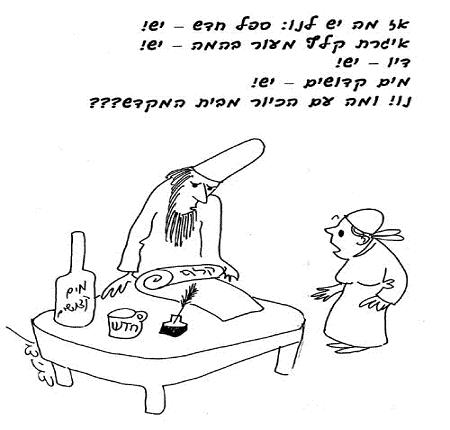
A married woman who is suspected of adultery is examined (in a sort of religious polygraph ritual) through the drinking of special waters. This ritual has precise details: The priest takes a new cup and fills it with sanctified water from the Holy Temple sink. He writes verses from the Torah on parchment and then dips the parchment into the sanctified water until the ink dissolves and is erased within the waters of the cup. An important detail is to be precise in writing the verses upon the parchment and intend them for the specific suspected woman. Because of this precision, this requirement to intend the writing to be used by that particular woman, one sage, Rava, asked: what is the rule if the priest wrote two parchments for two different women suspected of adultery but dipped them in a single cup? What are the issues under debate? Does the act of writing have to be specific to each woman, or does the act of erasure also have to be specific to each suspected woman? If the answer is positive, what is the rule, this sage continued to ask, if each parchment was dipped into a separate cup for each woman, but after the erasure the waters of both cups were mixed together? Is this mixed water valid for use in examining each of the suspected women? If the answer is negative, what is the rule, the sage went on to ask, if after the mixing the priest then separated the waters, each cupful by itself. Do we suppose that the water used to erase each parchment returned to the cup intended for each of the suspected women? Or, after the waters were mixed, is there no way of separating them? (these questions were left unanswered.)
(Babylonian Talmud, Tractate Sotah 18a)
